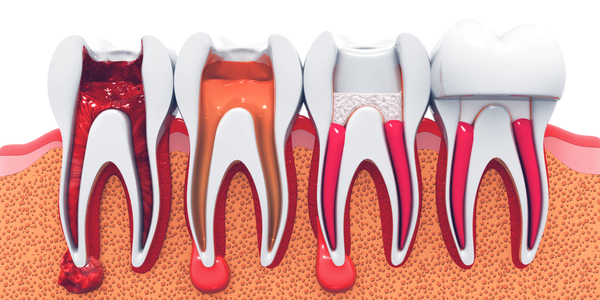
At the mere mention of the words ‘Root Canal’, many people instantly feel nervous, anxious and frightened of what the treatment might entail. They may leave the dental surgery and immediately ask friends or family if they have had the procedure, or jump straight onto Dr Google to look into it themselves. A lot of the time, the information they receive is skewed, misinterpreted and based on hearsay.
In reality, even though root canal treatment can be complex in its nature, for a patient it is no more complicated than having a lengthy filling appointment. The following are five common misconceptions about the procedure that you might encounter when researching root canal treatment. We want you to know the truth!
Root Canal Treatment Hurts
Advancements in anaesthesia and even more readily available sedation methods means that where treatment might have been painful in the past, it is actually relatively pain-free these days. The aim for root canal treatment is to relieve or prevent dental pain that may be experienced as a consequence of damage to a tooth through decay or even trauma.
Removing The Tooth Is Better Than Root Canal
In some instances, this statement can be true, and your dentist will make a full assessment of the risks and benefits of either saving your tooth or removing it. But, in the majority of cases especially if it is the first time the tooth requires root canal treatment, it is actually better to try to preserve your natural tooth. Implants, bridges and dentures are there to fill gaps, but there is no like for like replacement once a natural tooth is removed. Once it’s gone, it’s gone.
If The Tooth Does Not Hurt, It Doesn’t Need Root Canal
This is a really common thought many people have. While the stereotypical ‘throbbing’, ‘kept up at night’ and ‘constant pain’ are tell-tale signs for a tooth infection, sometimes root canal treatment is indicated even in the absence of these symptoms. If a tooth is severely decayed or broken down, root canal treatment may be needed to prevent future infections from developing; this actually increases the prognosis for treatment.
Root Canals Cause Illness
Recent media releases have contributed to this myth becoming more widely spread. There is no valid evidence linking systemic diseases to root canal treatment. To put it simply, root canals are safe and effective; they will treat an infection caused by bacteria and lead you back to oral health.
Root Canal Treatment Completely Restores A Tooth
This can be true but only in a very small number of cases. The majority of the time, teeth requiring root canal treatment are those at the back of the mouth and are extensively broken down due to decay, fractures or fillings that have failed. This, combined with the fact that a tooth becomes dry and brittle after root canal treatment, puts a tooth at a much higher risk of fracturing. To completely restore a tooth and protect it for several years, a strong permanent restoration such as a crown is needed. This will stop the tooth from breaking to a level where it cannot be saved.
Get Your Free Virtual Consultation
with Dr KP
Tell us about your smile and upload an optional selfie to receive a
FREE smile assessment from Dr KP and the team.